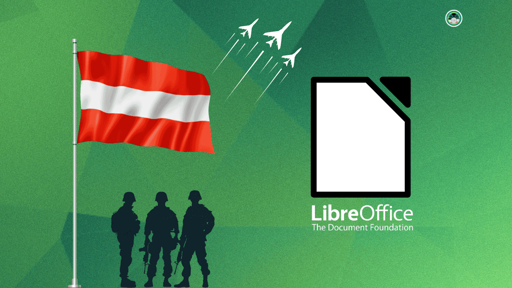The Austrian military didn’t just adopt LibreOffice; they actually contributed back to it. Over five person-years of development work went into adding features they needed. Those improvements are now available to everyone using LibreOffice, which is pretty cool.



I’ll never not be angry about the EU not developing their own OS/Distro, but using US software with backdoors. It is just insane. Yes, it probably would cost a few hundred millions extra, but a fighter jet also costs 100-130 million € and a safe OS is so extremly more important than a couple of extra fighter jets…
The EU does contribute to free software to some extent. But not enough.
At least 7% of Linux contributors are in Germany+France. An extra 2% from the UK. This is probably underestimated since the source has country info on only half of contributors. https://insights.linuxfoundation.org/project/korg/contributors?timeRange=past365days&start=2024-10-06&end=2025-10-06
The EU commission funded free software via NGI, and indirectly via NLnet. It’s a great initiative helping many small projects, but its future is incertain. https://nextgraph.org/eu-ngi-funding/
That’s not the EU contributing, that’s individual germans and french, on their own time or if lucky while employed by private companies. Not the EU [government].
That’s right, the commission probably isn’t involved on those cases. I interpreted “The EU” literally by including its various components, ie the EU commission, the member states governments, companies and individuals in those countries.
There’s no central “EU government” that decides everything. The EU is not a centralized country, not even a federation. Members states takes many decisions on their own, and often need to approve EU comission proposals.
I am not just talking about funding, but about investing in operating an alternative OS. All goverment institutions should be switched over. A single entity alone is not able to do this, because they face too many compatibility problems with other institutions/contractors/software companies (this is also why the article says “mostly”, even the military isn’t able to do it on its own, not even just for the office package, leave alone the OS). But if the EU decides to do this, everyone else will follow and start using compatible software.
You’re talking about a great number of organisations, with different decision makers. It takes time and political will to coordinate and execute this kind of big switch. This needs to happen to become independant from foreign monopolies, but I’m not surprised it hasn’t already happened.
The EU commission decides for some EU institutions. Member countries decide for their own institutions and military. Each country and military has its own labyrinth of bureaucracy with lengthy decision making, and large+complex IT infrastructures. All of this has inertia. And switching cost money, even if it’s possible to save on license cost on the long run.
Nah, they can give out directives and regulations to force the hand of local legislation. It happens all the time for many things. I personally have to deal with the fallout of one atm.
And I already said it costs money. And that is okay. National security costs money The EU spends several hundred billions every year on its military. A safe OS is much more important than a couple more jets. Even if it costs 5 billion euros, screw it even if it is 5 billion every year, it is still cheap compared to what it brings.